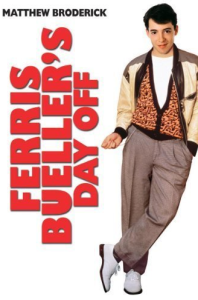We’ve all had those days when, lying in our crusty pyjamas on the battered sofa, we realised that we haven’t changed position in 7 hours. Around us, half-finished food lies unwanted, bygone memories if a half-hearted attempt to get some nourishment. Glasses of unknown liquids pile up around us like teetering towers of Pisa.
An indefinable fugg hangs in the air. The duvet day. The lost days, the thrown away hours that we have all wistfully blown to the wind, losing our sense of human decency and transforming slowly into a creature from the swamp.
Of course, for most people, duvet days are one in a million, an inevitable  and yet essential by-product from the chaos of our day to day lives. We can cherish the lost hours because they enable us, even if only briefly, to escape from society and hold up a finger to The Man. We become anti-human for just long enough to remind us that , actually, we do really rather like society and keeping up appearances of hygiene and togetherness.
and yet essential by-product from the chaos of our day to day lives. We can cherish the lost hours because they enable us, even if only briefly, to escape from society and hold up a finger to The Man. We become anti-human for just long enough to remind us that , actually, we do really rather like society and keeping up appearances of hygiene and togetherness.
There are those, however, who live according to the gospel of the duvet day. For those few, the duvet is merely “the day” and no amount of finger wagging or disapproving sighs could convince them otherwise. The Slacker has long been a part of society; never quite contributing to daily life and yet complaining endlessly about its pitfalls and uselessness, we can use the Slacker as a way by which to mark our own lives.
While it may be tempting to venture into their territory, when we do, it’s apparent that to be a Slacker is a full time job and that truthfully, most of us aren’t cut out for it.
Richard Linklater can perhaps be blamed for starting the whole thing off, or at least for bringing our attention to the phenomenon. In Slacker (1991), Linklater’s camera is as much a Slacker as the characters it follows around, moving lethargically from one situation to the next, never staying attentive to one situation for too long.
The Slackers in Linklater’s movie are largely politically active and yet their apparent focus in this area seems as much a way of enhancing their popularity than really making a change.
Ferris Bueller’s Day Off (John Hughues, 1986) highlights a slacker of a different kind. Bueller, who we follow over the course of one day, seems not at odds with life in general but rather, education and the enforcing figures he encounters at school. Bueller lives in a semi-fantasy world, half-constructed, half-real, in which he is king. And, he kind of is.
Not only does Ferris Bueller believe in his own mythology but also, so do those around him. In Ferris Bueller’s Day Off , John Hughes tells us we can stick it to The Man and become the masters of our own universe.
 Reality Bites (Ben Stiller, 1994) is another throwback to Generation X, the lost youth of the early ‘90s. Ruined by their parents’ success, chock full of too much self-worth and importance, this generation became waylaid by their own comfortable upbringing. Flung into the adult world after years of sheltered education, the cast of Reality Bites aren’t slackers so much as completely disillusioned. When faced with the corporate reality of the world in which they live, they would rather live on the fringes, still their progression and create a society of their own.
Reality Bites (Ben Stiller, 1994) is another throwback to Generation X, the lost youth of the early ‘90s. Ruined by their parents’ success, chock full of too much self-worth and importance, this generation became waylaid by their own comfortable upbringing. Flung into the adult world after years of sheltered education, the cast of Reality Bites aren’t slackers so much as completely disillusioned. When faced with the corporate reality of the world in which they live, they would rather live on the fringes, still their progression and create a society of their own.
Clerks (Kevin Smith, 1994) marks the day in the life of a teenager as he covers the shift of an absentee employee of the local Quick Stop shop. The aptly named Dante makes his way through his purgatorial shift with the help of his friend from the VHS shop across the road. Unlike the Slackers in the other films, Dante feels that he is more advanced than the people around him, bemoaning their existence. “If we’re so […] advanced, what are we doing working here?”, comes the pithy response of Randy.
Birthplace of the most famous (or infamous, depending upon which way you might sway) Slacker ever, The Big Lebowski (Coen Brothers, 1998) is still so popular, that swathes of fans regularly quote the mantra of The Dude. Giving the slacker generation a role model, a book of rules and a uniform (brown flannel robe and board shorts), The Big Lebowski is the ultimate Slacker film, defining both a generation and a genre. The Dude’s lifestyle continues to last precisely because he does not view it as a way of slacking.
To him, it is a precise and measured way of life, balanced carefully between a number of varied leisure activities. Responsible for single handedly bringing both bowling and the white Russian back in one fell swoop, The Dude does more for the slacker genre than all of the previous films combined. It is not a denial of life, to him, it is The Way of Life.

